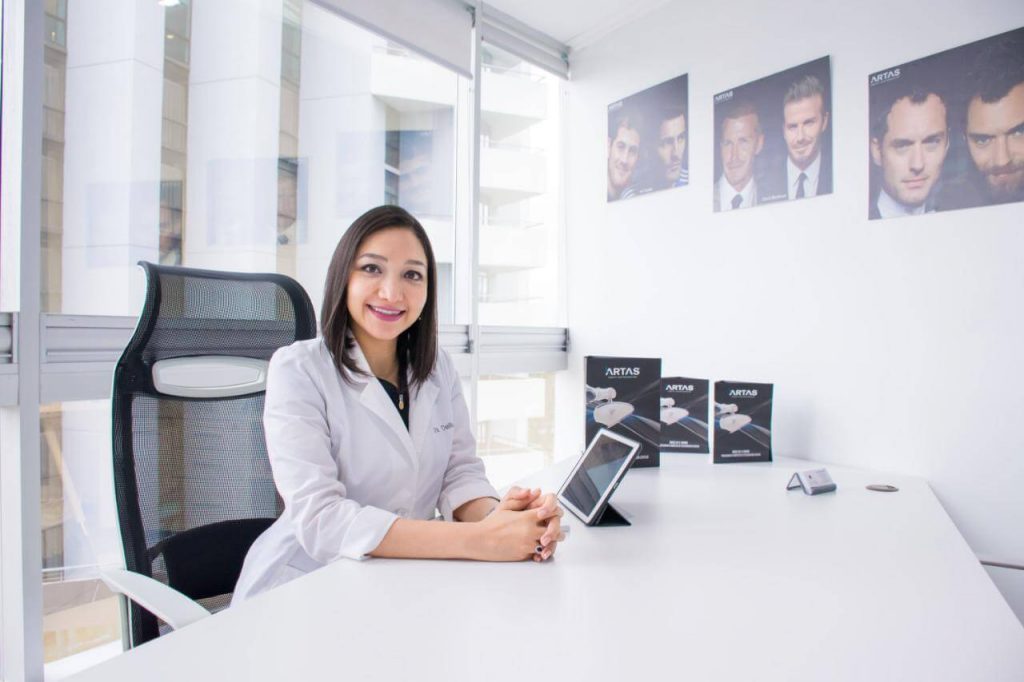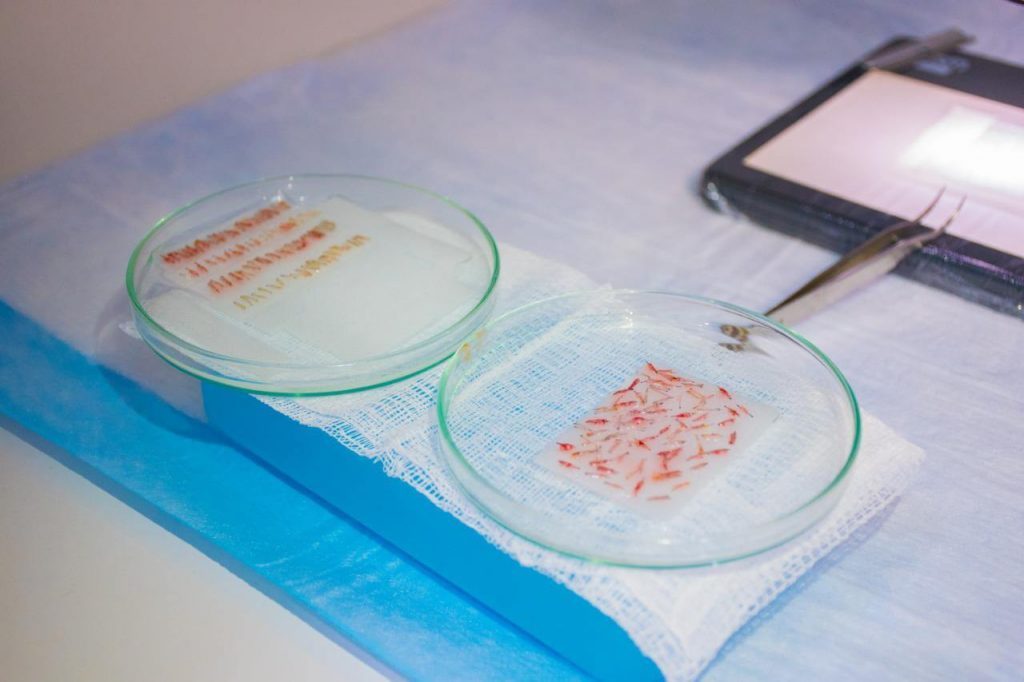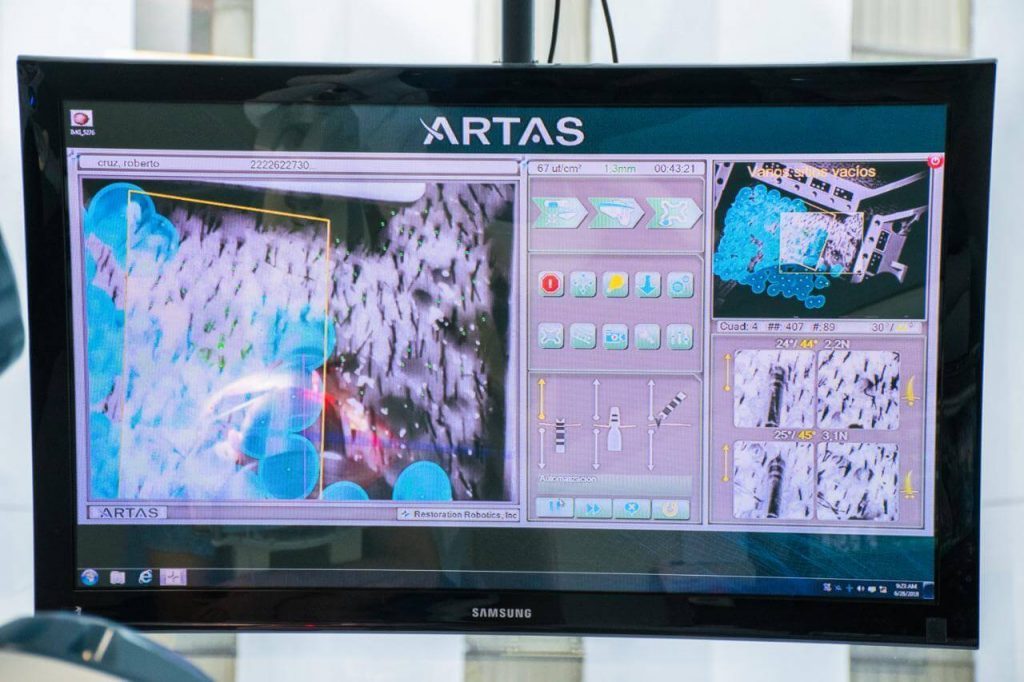According to a publication from the BBC, each year people spend around US$8,500 million on treatments related with baldness. In Guatemala, there is a robot capable of extracting the best follicular units thanks to high-precision technology and 3D visualizations. These follicles are later transplanted to the desired area of the patient.
This robot is called ARTAS and was developed by the company Hair Restoration Robotics, Inc. and was showcased to the International Society of Hair Restoration Surgeons in 2011. Currently, it holds the required certifications from the United States Food and Drug Administration (FDA).
Guatemala is a country with a growing health tourism industry. In fact, according to AGEXPORT’s Health and Wellness Commission, in 2018 this industry registered exports of US$74 million and created around 5,300 direct jobs.
Capillary Robotics is a clinic that counts with the international certification of Healthcare Facilities Accreditation (HFAP), being the first clinic in Central America with that certification for capillary transplants. The HFAP regulates practices of health companies under the standards of the Medicare and Medicaid Service Centers, as well as the US Conditions of Participation (CoPs).
The Medical Director, Dr. Dalila Pineda, said that the clinic started operations in 2016 and carried out 50 surgeries related with baldness that year. By 2017, the clinic was handling 100 surgeries yearly.
“This robot has the most advanced technology available on capillary transplants. In Guatemala, we are the only clinic that applies the ARTAS robotic method”, said Dr. Pineda.
Foreign patients have not arrived in Guatemala this year due to the COVID-19 pandemic. All appointments made for the year were basically cancelled. Also, some local appointments, mostly of patients living outside Guatemala City, were cancelled as well. This reduced the clinic’s operations by about 50%.
Nevertheless, Capillary Robotics has been able to adapt. To offer follow-up services to patients and start evaluation processes for new patients, the clinic offered services through videocalls. As well, it reinforced its hygiene, health and safety in the workplace protocols. These changes came to stay, according to Dr. Pineda.
Being trustworthy is nowadays a new competitive factor. At our clinic, all patients and workers are checked at the entrance to verify their temperature. They also need to apply hand sanitizer and disinfect their shoes. Lastly, the clinic also constantly disinfects all areas on the workplace.
“We also disinfect all our tools in front of the patient, and, of course, we also wear face masks”, remarked Dr. Pineda.
One key aspect is that we keep detailed records as all nurses need to fill in a special form for every visitor received, which includes basic questions to be able to identify if the person has had symptoms of COVID-19 or had been around a person who tested positive for the virus.
“We are conscious that social distancing regulations are here to stay. We need to get used to wear face masks. We even help our patients to suggest different types of face masks if they show allergic reactions to a specific type”, said Dr. Pineda.
Dalila Pineda graduated from medical school at the Mariano Galvez University and obtained a specialization in capillary surgery in Colombia. She also received a postgraduate degree in aesthetic medicine at the National Autonomous University of Mexico, where she also received a diploma on capillary surgery and is certified from ARTAS Robotic Hair Restoration.
The health and wellness tourism industry has been experiencing sustainable growth figures during the last years in Guatemala. Its value chain is large, and include hotels, restaurants, transportation companies, tour operations and health clinics. Capillary Robotics is an example of stories made #InGuate.










